Your cart is empty
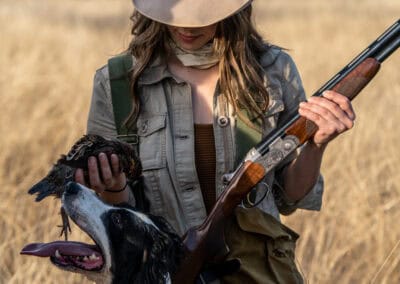
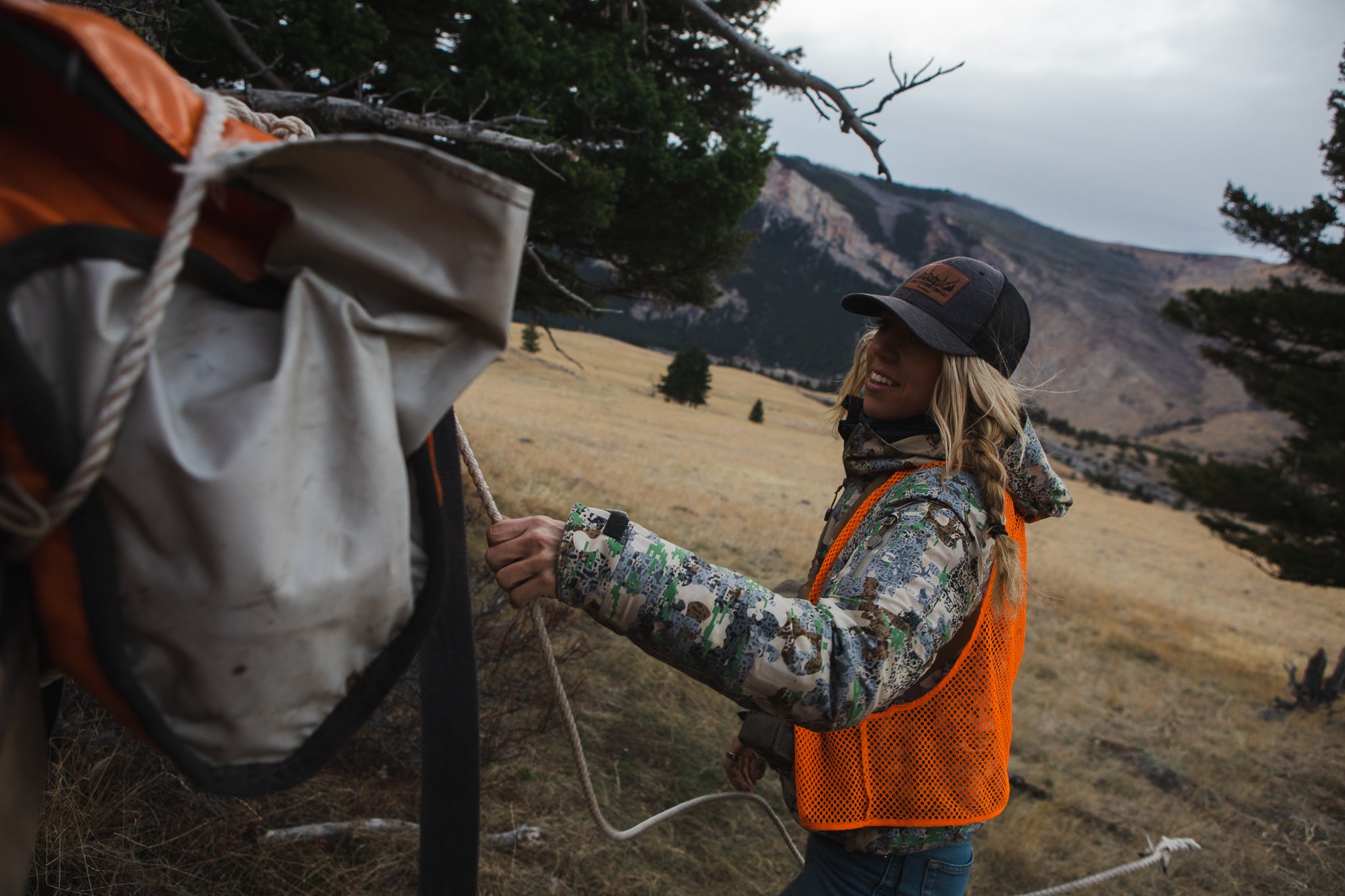
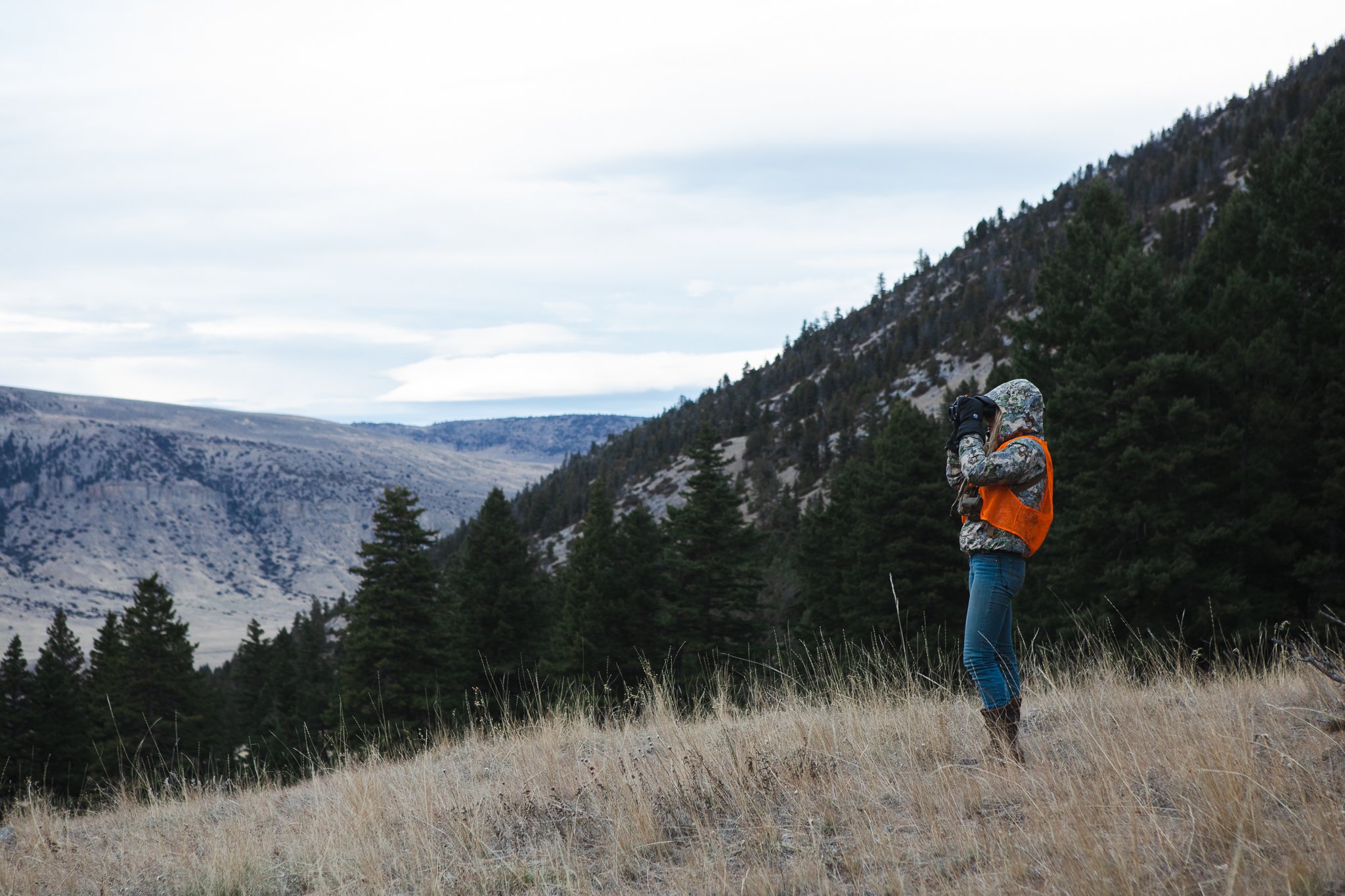
STORY BY Paige Southwood
PRESENTED BY Forloh
The clouds hung low in the sky as we hauled the loaded truck and trailer with horses and gear up the mountain pass to public lands where we could hunt for deer and elk. Maria Lovely, a sixth generation Montanan who grew up alongside these mountains in a remote ranch town, slowed the truck to a crawl as she scanned a nearby pasture brimming with a couple dozen mule deer casually grazing end of season field growth.
“See that buck – that’s a good one,” she says without taking eye contact off the field. “I would shoot him.”
Her eyes hung on the impressive animal for a few seconds before she pulled herself out of the reverie, pressed on the gas and continued up the mountain. Though private land prevented the shot, there’s no doubt Maria’s keen eye and practiced precision would have made a silent and swift kill. The 22 year-old is accustomed to confronting every challenge like an opportunity.
Maria grew up the daughter of a wilderness outfitter with the majestic Montana peaks right out her back door which exposed her to the mountain lifestyle from a very young age. She laughs as she recounts the story of her first horseback ride when she was only two weeks old.
“My mom held me in a front pack and took me out scouting for bighorn sheep,” she says with a huge smile, highlighting the sparkle in her blue eyes.
Her parents built a successful outfitting business in the Montana backcountry, embracing the wilds of the west and sharing them with visitors each season. From dog sledding and fly fishing to horseback riding and hunting, the Lovely family built a business and a life around the spoils of untouched land. She learned early on to appreciate and value the land alongside the hard work it required to maintain and enjoy.
Those early years in the rural West were formative for Maria and set the trajectory for the rest of her life. She learned how to hunt, ski, tack, ride, snowmobile, hitch a trailer, drive a truck and all the other skills essential for outdoor adventures. These skills propelled her into an outdoor career from a very young age.
Before she could even drive, Maria had already shot her first bull elk, bear and antelope with the help and tutelage of her dad. A black wolf came soon after. By high school, she was entering freeride ski competitions where she found herself on podiums again and again alongside her brother, Jack. She was soon approached by brands and even featured in Warren Miller’s ski film, “Future Retro.” Alongside her freeride ski career, she competed in skijor competitions – an event in which a skier is pulled by a horse through a race course. She eventually won the National Skijor Championship, but it wasn’t easy.
“I would’ve never imagined this is where life would take us,” she says with a heavy dose of humility and gratitude. “It was through a lot of hard work and practice with my dad that my brother and I honed our skills and got to the level of skiers we are.”
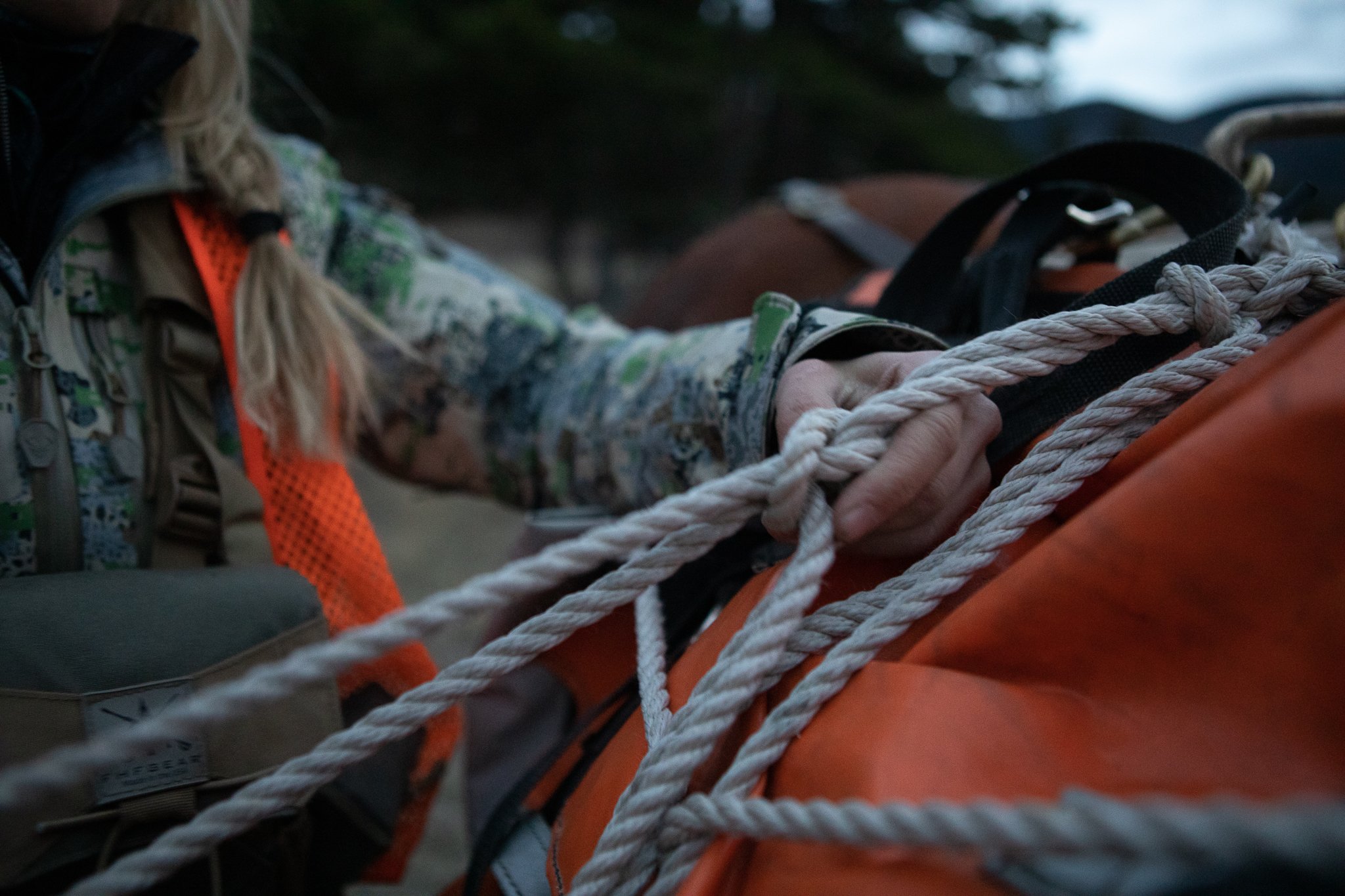
She didn’t arrive on the Big Sky slopes looking like the other skiers her age. Having grown up in rural Montana and attended a one-room schoolhouse, the community and culture at Big Sky were shockingly different. Instead of finding reasons to feel like an outsider, she dug in her heels and worked harder. She wanted to be the best in her field.
Maria’s fingers fly through the leather knots as she tacks up the horses for our backcountry attempt at a mid-November mule deer. Her eyes are focused and quiet, and she’s got that look of someone in the flow state carrying out the tasks she’s done at least a million times before. With the wind whistling over our shoulders, she saddles up the crew of tough trail horses and we head onto state land to start the search for venison. “I grew up on elk steaks and used to think beef was a treat,” she tells me. “And then I realized how lucky I was to have that elk!”
Growing up with an outfitting business meant that babies were never born in the autumn months and freezers were always full with enough meat to share. The mountains not only brought livelihood, they also brought food for the family. Even now, Maria gets a call from a friend who tells her he’s got an elk to share. “Do you want it,” he asks her over the phone. “Yeah, we’ll take it! Pops needs some food for his freezer. We’ll pick it up tonight.”
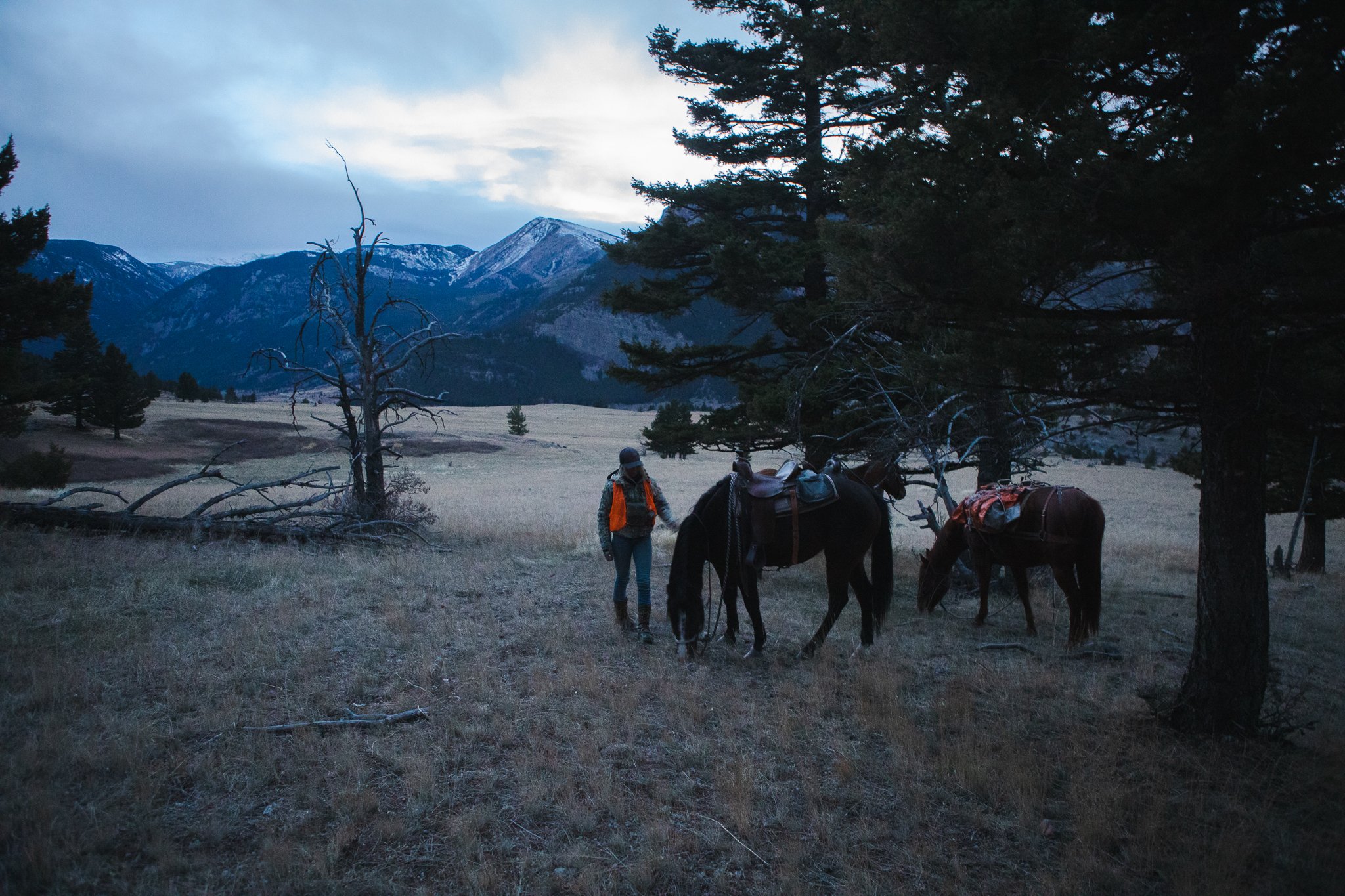
Maria’s granddad, “Pops,” will be happy with the extra meat storage for the winter. Once an avid hunter himself, he has given his fair share of elk meat to appreciative friends and family over the years. Unfortunately, his age has made his beloved sport a challenge in recent years.
Pops isn’t the only one who has found his strength slipping. Just last winter, Maria came home frustrated from the latest in a long string of disappointing doctor visits diagnosing, un-diagnosing, re-diagnosing, prescribing, and offering unhelpful advice to treat her worsening late-stage Lyme disease symptoms. Over the next several months she turned down many work assignments while her symptoms worsened. Some days even the simplest tasks were a challenge. Other days the migraines made it impossible to get out of bed. Sometimes the body aches made a short hike or hunt all she could muster. She watched as her once muscled legs shrunk under the loss and disease.
But Maria was born a tough athlete, and she knows what it takes to meet a challenge head on. What would be a career blow for some athletes has been a mere stumbling block for Maria. Defeat is not an option.
Dusk starts to settle as we pack up our camp and load the horses for the journey back. There weren’t deer or elk this time.
“The early October snow sent them all down the mountain and onto private land,” Maria tells me.
The elk spend summers in the higher altitudes and winters in the valley where most private landowners reside. It hasn’t been a successful hunting year for many in this part of the country. The mule deer were just barely visible with the scope but too far for a rifle. Maybe next time.
To Maria, this hunt was a success. Every hunt is a success. It was never about the trophy photo or even the life-giving meat. It was always about the experience in the mountains and time with friends and family doing the activities she loves best. From skiing expert mountains in the high altitudes of Big Sky to strapping burly leather game bags to her horses’ saddles, every moment is a gift. And maybe that’s what sets her apart from other athletes and brings the unattainable into focus – her drive to push limits and explore boundaries originates from a deep and natural love of the basic elements of sport. Her career and health trajectory reflect this innate drive and boundless passion.
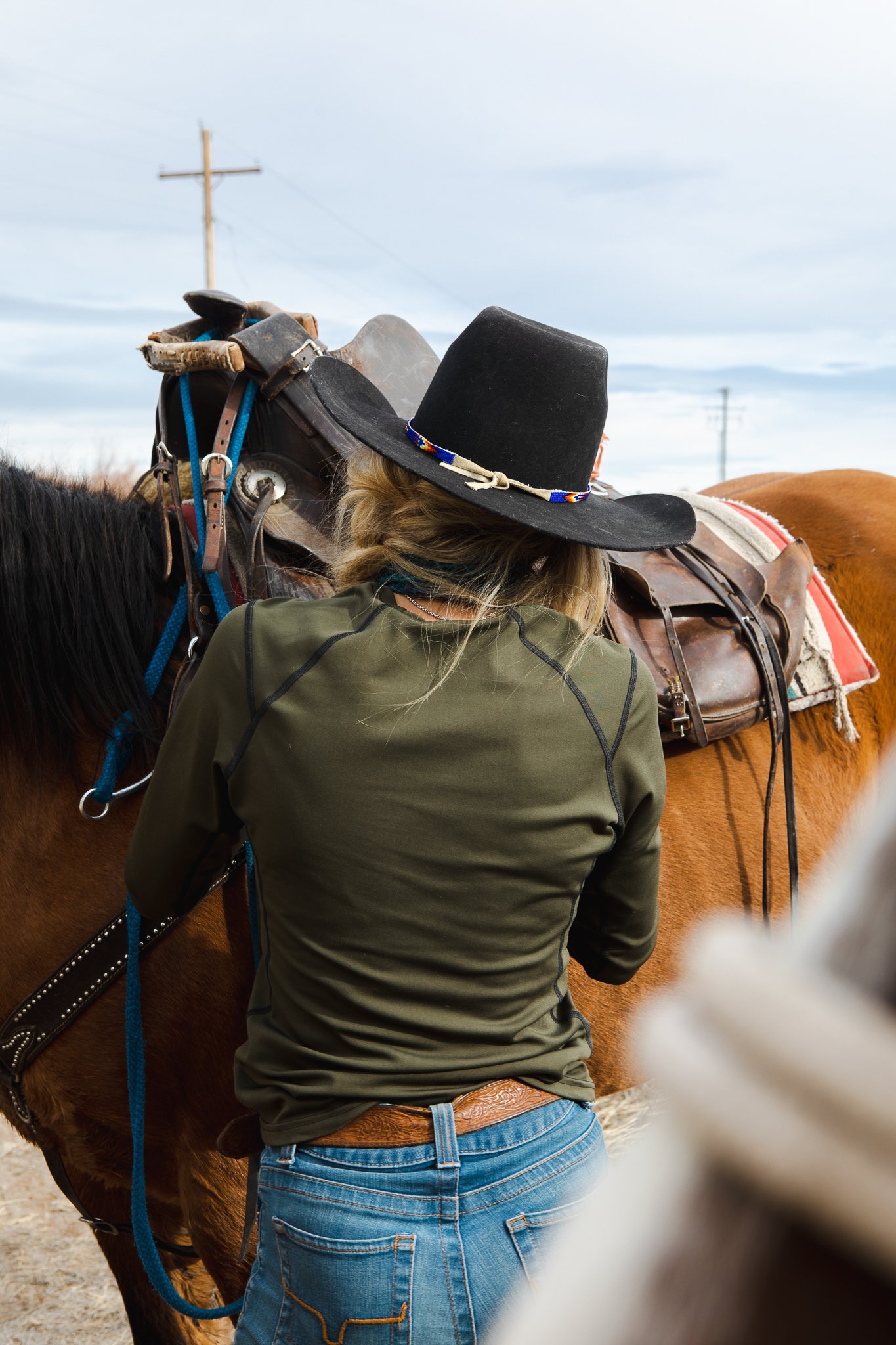
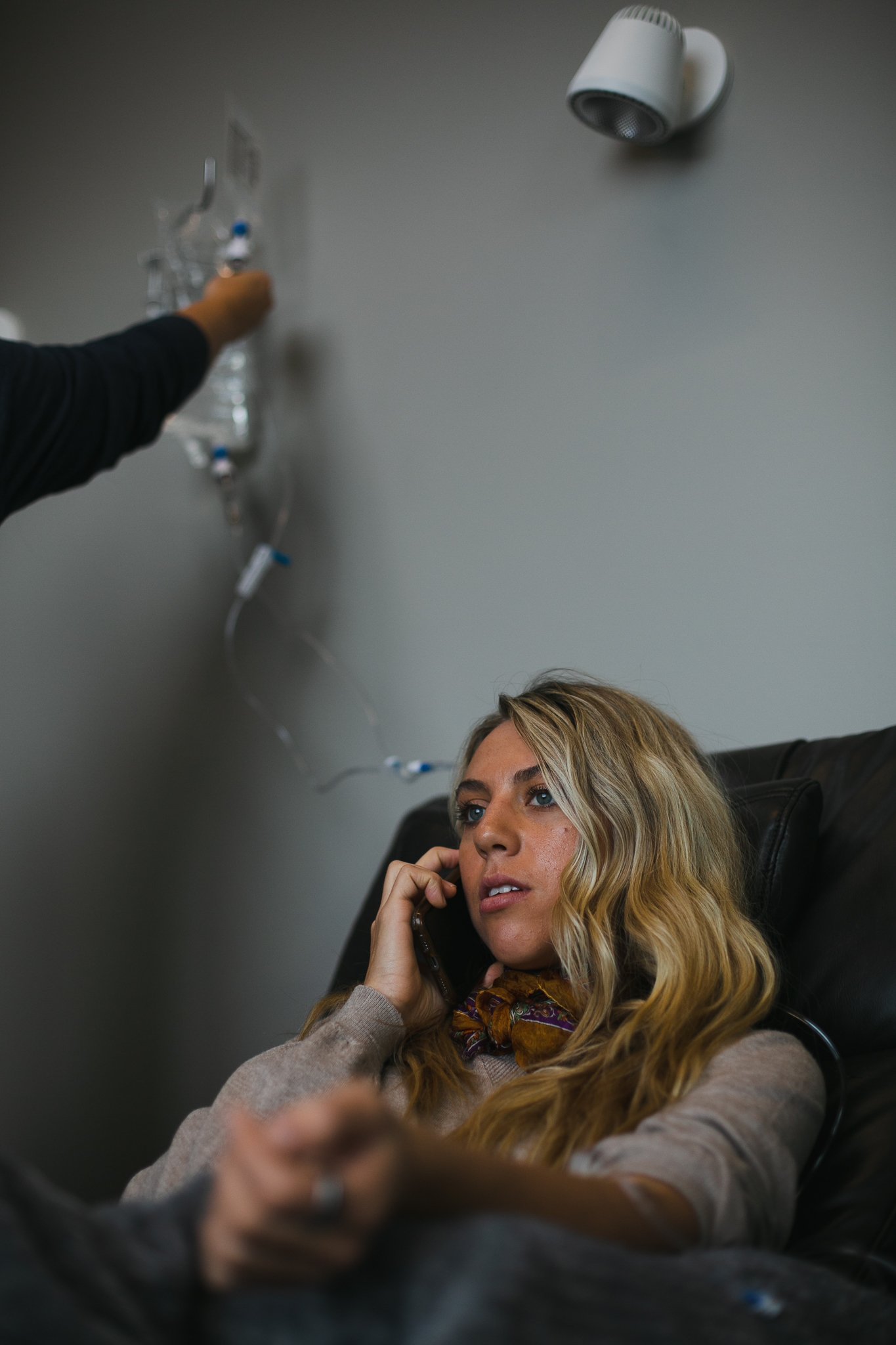
Ever since Maria discovered The Heal Hive, an online education platform for people seeking alternative treatments for chronic illness, her Lyme disease symptoms have been improving. She has been experimenting with a gluten-free diet, weekly intravenous vitamins and nutrients and regular blood tests to prepare her for bee venom therapy starting in the next few months. She meets virtually with people around the world who are also battling chronic late-stage Lyme disease and seeing improvements through alternative medicines. Her own body’s regeneration is proof enough that it’s working. Getting out of the house, packing up the horses, driving the trailer and spending time in the backcountry is always worth it. She can even find the strength most days for the epic long hikes she loves while tracking animals alongside family and friends.
“They’re some of my best memories,” she says with a huge smile and a far-off look. She tells me about a hunt a few years back when she and her dad both got elk on this same mountain. When they got back to camp her mom had warm food waiting for them and life couldn’t get any better.
The horses know their way back to the trailer, so we let them guide us along the steep rocky trails and under low branches and brambles. A rogue branch steals my beanie and I make note of my small sacrifice to the trail gods. Night has officially fallen, and I’m about as useful as a blind man in this darkness. Thankfully, Maria and her horses have been here enough times they could navigate this mountain with their eyes closed. I look ahead in the dimness and see her unmistakable confidence and comfort. This granite is her friend. These trees are her brothers. This land is her home.
As we load the horses back into the trailer, a fellow rider at the trailhead greets us and laughs as he makes a family connection with Maria. “I rented horses from your dad!” he exclaims with delight. The pair exchange a few pleasantries and family updates before shaking hands and leaving with big smiles. This valley is small, but the community is even smaller.
After rescuing a rebellious glove that blew almost 100 feet away from the trailer in the tempestuous winds, we start the gradual descent back to town. I’m surprised by how exhausted I am just watching Maria work all afternoon. Her energy is infectious and constant, and she gives no outward signs of physical distress or fatigue. The day’s work has not defeated her strength or her spirit. Her health challenges, unmet hunting goals and skiers’ legs are mere mental games to stealthily track down and take out. Though the weather may not always cooperate, the goal may feel out of reach, and there may be many more miles to ride, the hunt does not stop until the tag is filled and the freezers have reached capacity. No matter the challenge, Maria’s sights are set and ready for the shot.
Related Stories


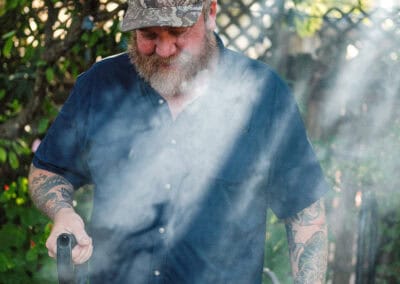
Latest Stories


